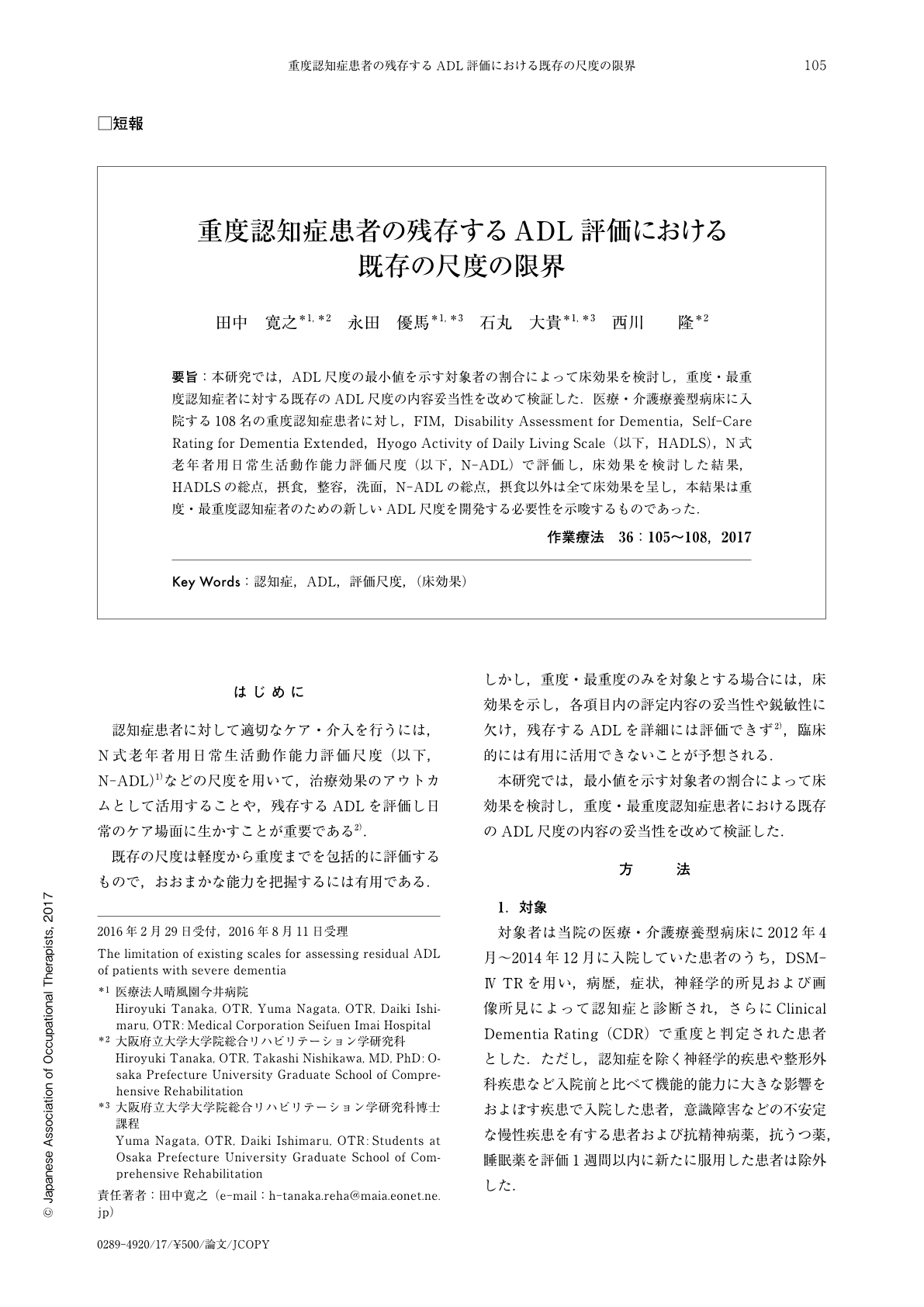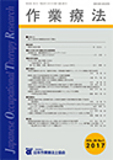Japanese
English
- 販売していません
- Abstract 文献概要
- 1ページ目 Look Inside
- 参考文献 Reference
要旨:本研究では,ADL尺度の最小値を示す対象者の割合によって床効果を検討し,重度・最重度認知症者に対する既存のADL尺度の内容妥当性を改めて検証した.医療・介護療養型病床に入院する108名の重度認知症患者に対し,FIM,Disability Assessment for Dementia,Self-Care Rating for Dementia Extended,Hyogo Activity of Daily Living Scale(以下,HADLS),N式老年者用日常生活動作能力評価尺度(以下,N-ADL)で評価し,床効果を検討した結果,HADLSの総点,摂食,整容,洗面,N-ADLの総点,摂食以外は全て床効果を呈し,本結果は重度・最重度認知症者のための新しいADL尺度を開発する必要性を示唆するものであった.
Existing ADL scales exhibit a floor effect for patients with moderately severe to extremely severe dementia, and their inability to assess residual ADL in dementia patients has been criticized. This study examined if existing scales can appropriately measure the residual ADL of patients with severe dementia without such floor effects. We used the Functional Independence Measure (FIM), Disability Assessment for Dementia (DAD), Self-Care Rating for Dementia Extended (SCR-DE) Scale, Hyogo Activities of Daily Living Scale (HADLS), and Nishimura's Activities of Daily Living Scale (N-ADL) to rate ADL in severe dementia patients admitted to medical facilities for long-term care. We examined a floor effect of both the scores of each item and the total scores by indicating the ratio of the subjects showing minimum scores in these scales. 108 subjects were included in the analysis. Only the following items or scores did not exhibit a floor effect: “total score”, “eating”, “posture”, and “washing” on the HADLS, and “total score” and “eating” on the N-ADL. We therefore consider that the existing ADL scales are not valid for assessing the ADL of hospitalized elderly patients with moderately severe to extremely severe dementia. The development of a new ADL scale that examines cooperative attitudes towards ADL in detail is deemed necessary for severe dementia.

Copyright © 2017, Japanese Association of Occupational Therapists. All rights reserved.


